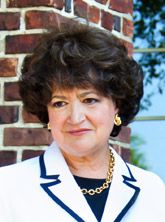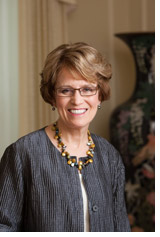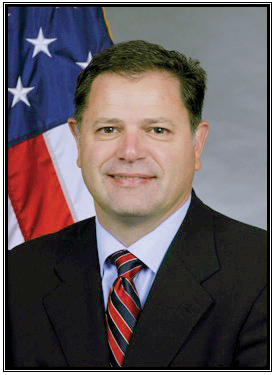Q&A: Nurturing Innovative Companies on the Cutting Edge of Industry
 |
 |
Ray Leach is the founding CEO of JumpStart Inc., a Cleveland, Ohio-based organization that has gained national recognition for its innovative model and economic impact in Northeast Ohio. In 2011, then-Secretary of Commerce Gary Locke named Leach a member of the National Advisory Council on Innovation and Entrepreneurship. |
RoseAnn B. Rosenthal is the president and chief executive officer of Ben Franklin Technology Partners of Southeastern Pennsylvania, a business development organization founded in 1983. In 2010, then-Secretary of Commerce Gary Locke named Rosenthal to be a member of the National Advisory Council on Innovation and Entrepreneurship. |
Recently, EDA asked two members of the National Advisory Council on Innovation and Entrepreneurship (NACIE)Ray Leach, the chief executive officer of JumpStart Inc. in Ohio, and RoseAnn B. Rosenthal, president and chief executive officer of the Ben Franklin Technology Partners of Southeastern Pennsylvaniaabout their work with NACIE and what they see as the challenges to successfully supporting small business development and entrepreneurship. Here are their responses.
Q: You have both been members of NACIE since its inception. What are the benefits of this public/private partnership?
Leach:NACIE has been a unique opportunity to broaden the range and depth of voices, perspectives, and insights shared with our federal leaders in Washington. This engaged collaboration has resulted in individual private, philanthropic, and institutional leaders working “outside the beltway” to generate more informed ideas to share with the administration. I have been incredibly impressed by how the administration has not only leveraged these insights but, more importantly, how they have taken very significant action on the Council’s recommendations.
Rosenthal: NACIE brought together accomplished individuals with varying perspectives and experiences with regard to issues of innovation and entrepreneurship. Together, they are able to speak to the key issues impeding our nation’s ability to leverage its tremendous assets for the sustained growth that is critical for today and for future generations. There has been an exchange of information and a willingness to join in developing recommendations that are practical and achievable. One example is the Access to Capital Report that NACIE produced and which informed the Start Up America legislation sent to Congress.
Q: Over the past three years, the Obama administration has undertaken a number of initiatives to promote private-sector investment and small-business development. Which of these do you consider to be the most important?
Leach: I think some of the most impressive efforts have been around access to capital, such as the $2 billion expansion of Small Business Administration (SBA) programs focused on providing capital (at no cost to the U.S. taxpayer) to private sector investors looking to put capital into high potential firms. Another example is the legislation to eliminate capital gains for small business investments. The administration has taken significant and dramatic action on these issues in response to NACIE recommendations.
Rosenthal: For our startup technology entrepreneurs, the core issue is the availability of pre-seed and seed capital. The efforts by EDA to seed regional efforts that coalesce communities around an innovation agenda, much as Ben Franklin was started by Pennsylvania almost 30 years ago, can yield long-term results. The SBA’s Intermediary Lender Program and Treasury’s State Small Business Credit Initiative programs open new sources of early-stage investment capital. These programs are important in that they create public-private partnerships with qualified and experienced intermediaries at the local level, and they make investment dollars, not grants, available to growth companies.
Q: Your organizations have had a lot of success in nurturing innovative companies that are on the cutting edge of industry. What are some of the keys to successfully launching a tech-intensive startup?
Leach: While there is a lot of conversation around capitaland for many good reasonsI think the most important asset that new initiatives and companies must have is great people. JumpStart is lucky to have an incredibly smart, committed, and hard-working team. At the same time, in our efforts to help other for-profit firms, we have made a significant investment in programs ranging from internships to executive placement services to help bring the brightest and most experienced minds to young companies in Ohio.
Rosenthal: First, people, people, people it is so important to have the right team and talented people, both leading and operating the company, but also advising the company. Second, pursuing a “lean startup” approach to product and company development. Capital is not easy to come by, and it is expensive. It is important to raise sufficient capital at the right time, at the right valuation, from the right set of investors. Third, a solid knowledge of the competition, your own competitive advantage, and how to exploit that advantage. And, fourth, where applicable, pursuing the appropriate intellectual property strategy.
Q: What do you see as the 21st century economic development model, and how does it differ from that of the past?
Leach: Since almost all net new jobs in our national economy are coming from startups and existing small companies across the country, we need to nurture and support the growth of high-potential young businesses. Economic development professionals today can benefit greatly from significant practical experience, either as long-standing advocates for small business or as businesspeople themselves.
Rosenthal: That is THE question for all of us in this arena. We are seeing a move in our society toward what has been called the “fourth sector”not public, not private, not government, but an approach that acknowledges the need for clearly “double bottom line” approaches and that creates new forms of public/private partnerships.
The National Advisory Council on Innovation and Entrepreneurship is a group that was organized to support President Obama’s innovation strategy by helping to develop policies that foster entrepreneurship and identifying new ways to take great ideas from the lab to the marketplace to drive economic growth and create jobs.
Special Feature:
Strengthening the Innovation Ecosystem

Mary Sue Coleman, president of the University of Michigan and co-chair of the National Advisory Council on Innovation and Entrepreneurship.
|
A remarkably productive ecosystem for innovation has flourished through the relationships among academia, government, industry, and the entrepreneurial community. According to Mary Sue Coleman, president of the University of Michigan and co-chair of the National Advisory Council on Innovation and Entrepreneurship, we must continue to invest in this ecosystem, to encourage innovation and thereby ensure that the U.S. economy thrives.
by Mary Sue Coleman
Our nation’s universities are central to our economic health and vitality. Through both education and research, they are a vital source of people and ideas that spark the development of new products, new processes, new companies, and entirely new industries.
Despite their profound impact, universities’ role in innovation was not planned. Instead, it evolved over the last several decades, shaped largely by federal support of basic research, the spirit of inquiry on our nation’s campuses, and the entrepreneurial culture of our society. What has emerged is a remarkably productive “ecosystem” for innovation that has flourished through the relationships among academia, government, industry, and the entrepreneurial community.
But in today’s increasingly competitive marketplace, universities and their partners must become more intentional in harnessing the potential of this ecosystem. And indeed, a wide range of new activities and programs are springing up to do just that.
In 1980, the Bayh-Dole Act gave universities ownership of intellectual property developed on campus under federal research funding. This policy greatly accelerated the transfer of new technologies to the marketplace through licensing to existing companies and to start-ups.
A major focus today is to boost the frequency and success rate of university spinoffs, which are willing to take the risk of bringing novel technologies to the marketplace. More and more universities are developing incentives to encourage faculty entrepreneurship and to support new ventures. At the University of Michigan (U-M), the Office of Technology Transfer created a Venture Center, a one-stop center for faculty and venture partners to access technology, expertise, and resources to create new ventures based on U-M technology. The Center includes a business accelerator that provides space and resources to help emerging start-ups through the critical early growth stage.
As important as university startups are, the great majority of new companies are launched by students after they have graduated and gained experience in the workplace. Many universities are therefore creating a variety of programs to better prepare students to be entrepreneurs. On our campus alone, a host of courses, degree programs, competitions, mentoring and networking opportunities, and even a student business accelerator, have sprung up to meet the need, and the growing demands from the students themselves.
Encouraging greater cooperation between academia and industry is critical. By connecting to university resources and programs, companies can not only boost their own growth and productivity, but also strengthen teaching and research on campus. To encourage these ties, six of Michigan’s 15 public universitiesrepresenting nearly 98 percent of the academic research done in the staterecently came together to form the Michigan Corporate Relations Network.
U-M’s arm of this network, the Business Engagement Center, was formed four years ago. Today, it maintains relationships with more than 1,000 companies, and nearly 200 new companies contact it each year, showing the corporate community’s clear interest in building stronger ties to academia.
Universities are also stepping up their engagement in local and regional economic development, highlighting the value their educational and research programs bring to the process. In Michigan, the state’s three leading research universitiesMichigan State University, Wayne State University, and the University of Michiganformed an alliance in 2006 expressly aimed at helping to revitalize the state’s economy through collaboration, events, and outreach.
At the federal level, new initiatives are emerging that tap the potential of the innovation ecosystem to help address major economic challenges. For example, the Advanced Manufacturing Program, announced last June, targets the manufacturing sectorthe heart of a vibrant economy. It will provide more than $500 million to bring together industry, academia, and government to speed the development and implementation of new technologies and approaches to help our nation’s manufacturers innovate and compete.
All of these developments show a growing awareness of both the complexity and the power of the innovation ecosystemone of our nation’s greatest resources. By continuing to invest in this system, and by finding new ways to coordinate and focus its activities, we can encourage innovation to flourish, and help our economy to thrive.
Mary Sue Coleman has led the University of Michigan since being appointed its 13th president in August 2002. President Obama selected her as one of six university presidents to help launch the Advanced Manufacturing Partnership, a national effort bringing together industry, universities, and the federal government. And in 2010, then-Secretary of Commerce Gary Locke named her co-chair of the National Advisory Council on Innovation and Entrepreneurship.
|






